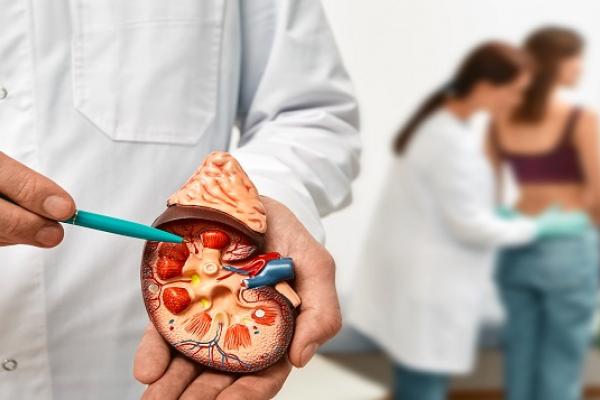6 Misconceptions About Kidney Stones
The incidence of kidney stones is a problem with varied statistics in variousparts of the world. This incidence in question more common especially in countries with hot climates such as ours. Although this problem, which has serious negative effects on the quality of life of the person is quiet common, it is filled with various misconceptions. Yeditepe University Kozyatağı Hospital Urology Specialist Assoc. Prof. Dr. İlter Alkan stated that the incidence of kidney stones in our country that is located within the kidney stone belt, is approximately 15% and this rate is higher when it is compared with the incidence rate in the USA (10%). Reminding that many people in the society are struggling with this problem, he then proceeded to dispel the misconceptions.
“People who suffer from calcium stones in their kidneys should limit their consumption of dairy products such as milk & cheese.”
TRUTH: Yeditepe University Kozyatağı Hospital Urology Specialist Assoc. Prof. Dr. İlter Alkan gave the following information:
“The calcium intake in our diet actually protects us from kidney stones. Excessively restricting the amount of calcium in our diet (this “excess” is about less than 400 mg per day) increases the risk of calcium oxalate stone formation as it reduces the binding of calcium with oxalate in the intestines. Therefore, it is wrong to restrict calcium, daily calcium intake should be normal or even slightly higher (which equates to 1000-1200 mg daily).
“In order to prevent kidney stones, one must only drink water.”
TRUTH: Despite reminding that daily fluid intake is one of the most important factors for the prevention of stone formation, Assoc. Prof. Dr. İlter Alkan said that the information that only water should be drunk to prevent kidney stones is not particularly accurate. He added, "Water is the best option for fluid intake, but other fluids should also be included throughout the day. A person who drops a stone should of course take 3 liters of fluid daily. Yet, other beverages such as coffee, lemonade, fruit juices and milk should also be added to this amount. However, tea is not recommended for excessive consumption because it contains high oxalate, yet this effect can be reduced by mixing it with milk. However, it would be more appropriate to consume fruit juices, if one is to, (apple or grapefruit) in a limited way because of the fructose they contain.
“Kidney stone patients must limit their Vitamin C intake.”
TRUTH: Reminding that the daily recommended amount of Vitamin C is 75 mg for women and 90 mg for men, Assoc. Prof. İlter Alkan explained the truth of this information as follows: “There is no problem with these amounts. However, excessive intake of vitamin C (over 1000 mg/day) may increase the risk of stones. Again, those who reduce oxalate stones should avoid vitamin supplements containing high amounts of vitamin C (1000 mg/day).
“Meat consumption causes kidney stones”
TRUTH: Reminding us that the information that eating meat causes kidney stones is not very accurate, Assoc. Prof. İlter Alkan, after stating that while consuming too much meat (animal proteins) can be a factor that increases the risk also added “The recommended daily amount of protein is 0.8-1 grams per kilo. Protein which is taken in normal amounts (even when it is of animal origin) does not by itself increase the risk of kidney stones. However, excessive intake (2 grams/kg or more per day) might increase the risk.
“Vegetables and Fruits contain high oxalates which cause stone formation”
TRUTH: Assoc. Prof. İlter Alkan pointed out that this information is also not correct. Alkan continued his words as follows: “A balanced diet and abundant consumption of vegetables and fruits play an important role in preventing kidney stones. Patients who have kidney stones should prefer vegetables and fruits containing less than 80 mg of oxalate per serving. Spinach, cabbage, hazelnut, almond, chocolate are foods which contain high oxalate. It is recommended to apply the intake of these foods with milk, as it will reduce oxalate absorption by the intestines.
“I can get rid of my stones with the help of natural supplements and/or medicines”
TRUTH: Reminding that kidney stone patients may seek different solutions due to this misinformation which may cause undesirable results, Assoc. Prof İlter Alkan made the following statements on the subject: “For calcium stones and stones with other contents, which make up the majority of stones (75-80%), dissolution via drug treatment is not possible. However, it is possible to dissolve the stones such as uric acid stones via this approach.
”


